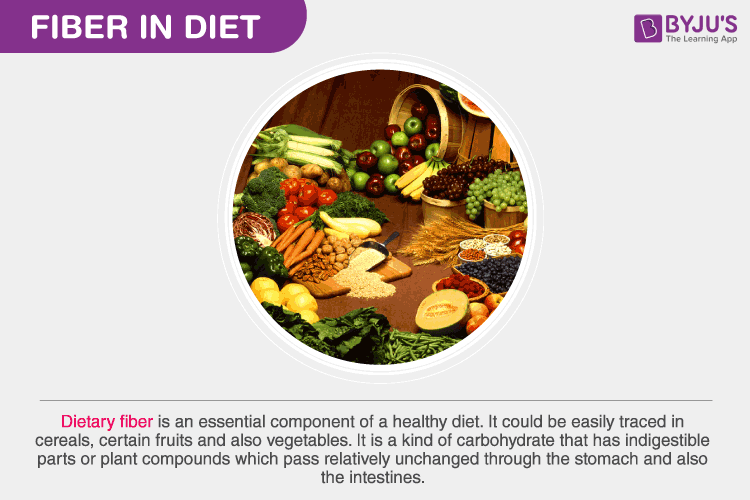
Dietary fibre is an essential component of a healthy diet. It could be easily traced in cereals, certain fruits and also vegetables. It is a kind of carbohydrate that has indigestible parts or plant compounds which pass relatively unchanged through the stomach and also the intestines. Since it could pass relatively unobstructed within the stomach and intestines, it keeps the digestive system in our body healthy. Other names by which the fibre is known includes ‘bulk’ and ‘roughage’. The fibres are bulky and some fibre forms are soluble in water and are not so bulky or even rough.
Dietary fibre
Dietary fibre prevents heart disease, diabetes, weight gain and some cancers. It even contributes to some of the other processes like stabilizing glucose and also cholesterol levels. In other countries with traditional diets of high-fibre, diseases like bowel cancer, coronary heart disease, and diabetes are known to be much less common than in other countries. They help in weight loss too, since it fills the belly, acting somewhat like the sponge, it is slower to be digested and absorbed hence making one feel full. It also provides bulk, which aids elimination and that is how it helps lower blood cholesterol. Children between the age group of four and eight should ideally consume around 18 g of fibre each day.
Consuming a low-fibre diet could give rise to various disorders like constipation. The small, hard and dry faecal matter which is hard to pass, diverticulitis or the small hernias from the digestive tract occur due to constipation over a long time. The syndrome named irritable bowel have symptoms like pain, bloating and flatulence of the abdomen. Low dietary fiber also results in overweight, and also obesity, diabetes characterized by too much of glucose within the blood and colon cancer, being some other disorders.
The sources of fibres include beans, whole grains, brown rice, which offers more fibre than white rice, popcorn, nuts like almonds, pecans, and walnuts, baked potato along with its skin, bran cereal, oatmeal and berries.
To know more about the topics discussed above, visit BYJU’S.
Frequently Asked Questions on Fibre In Diet
What is dietary fibre?
Dietary fibre refers to the components present in the body which cannot be digested by the body. They constitute the bulk of food intake.
Is dietary fibre high in calories?
No. Dietary fibre is not digested by the body. Therefore, they do not add calories to the diet.
What is the use of dietary fibres?
Dietary fibres keep the digestive system in our body healthy. It stabilises glucose and also cholesterol levels.
What happens to the body if there is less dietary fibre?
Less dietary fibre causes constipation, overweight, colon cancer and irritable bowel syndrome.
What is irritable bowel syndrome?
The syndrome named irritable bowel has symptoms like pain, bloating and flatulence of the abdomen.


Comments